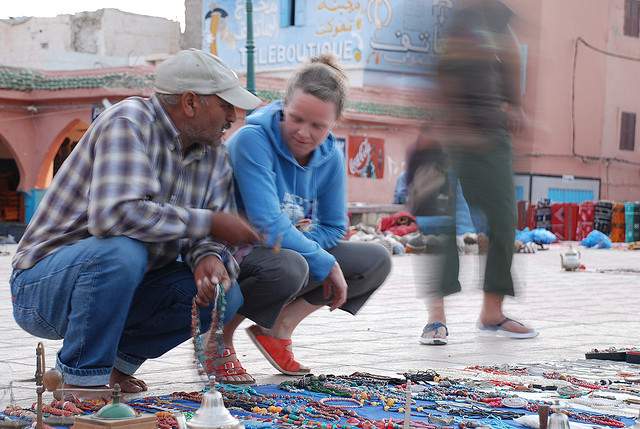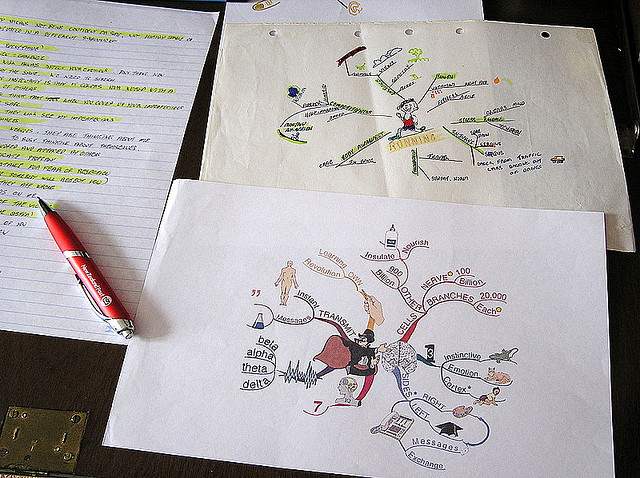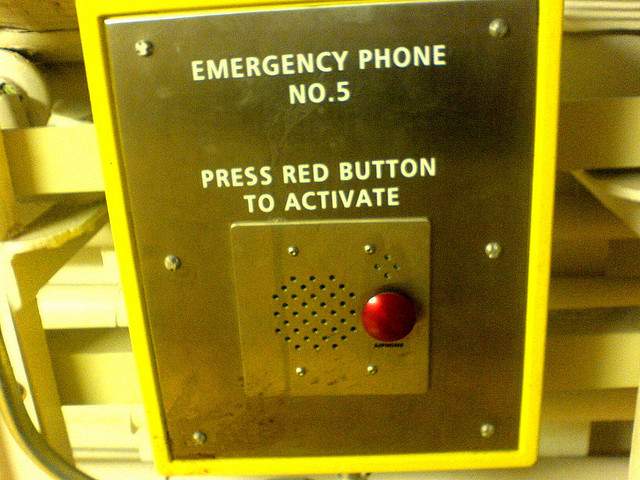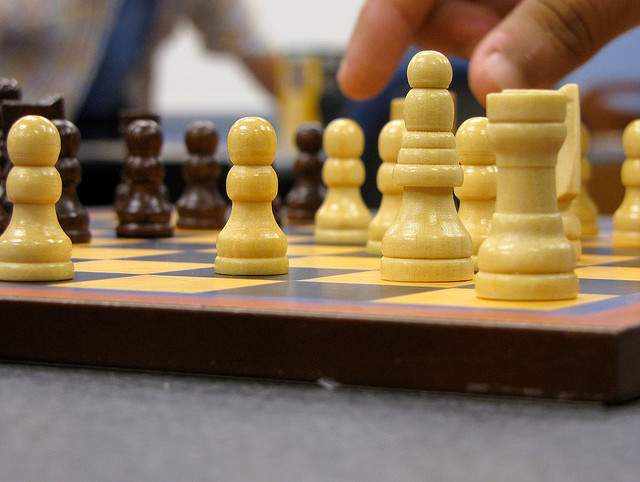In anticipation of this year’s Meet, Plan, Go event on September 20, we’ll be focusing on the concept of career breaks each Thursday until the event. If you’re on the fence about taking a career break, or you’re planning one and want expert advice from people who have been there and done that, this is the event for you! Register now as space is limited.
If a career can be seen as something which you carve out for yourself as an individual, then travel is an activity that enhances your understanding of yourself and the world around you, honing skills which are indispensable not only in improving your work life or finding that perfect job, but also in improving all other aspects of your life. Talking about these skills and mentioning anecdotes from your travels during a job interview will surely set you apart from those who have never set foot outside their hometown.
Traditionally, most people have thought of travel as a break from the pressures and commitments of daily life, especially those encountered in the grind of the working world. Seen as the antithesis of work, travel is the most sought-out way to de-stress and get away from it all. But when it comes to taking a longer and more significant break from work, traditional thoughts have told us that travel can be seen as an activity that is counterproductive or harmful to one’s career path. When people write off career break traveling, they tend to mention its lack of concrete experiences which can be put towards building a formidable resume. The difficulty of explaining a career break trip to a future employer is one of the reasons why some are reluctant to set off on their next big adventure.
Excelling in your career does not just entail past experience or hard skills; it also involves personality, life experiences, and everything that makes you who you are.
However, with an increasingly globalized world and the rising demands of competitive 21st century skills in the job market, travel is actually one of the best things you can do to boost your career skills and to develop as a professional, and as a person. Excelling in your career does not just entail past experience or hard skills; it also involves personality, life experiences, and everything that makes you who you are. The soft skills that are acquired and improved on the road, whether it is a six-month backpacking trip or an ongoing round-the-world-trip, are just as important as any past jobs you may have had.
Time management

One of the skills that can make or break your sanity is the efficient use of time; there just never seems to be enough of it! Time management doesn’t only involve getting things done in the allotted time, it also involves prioritizing, setting goals, working smarter, though not necessarily harder, and also leaving time for yourself to enjoy life outside of work.
Ask anyone who has ever been on a trip, and they will tell you that one of the most important factors to planning and enjoying any kind of vacation is the effective usage of time. Some may think that this is a piece of cake (how hard can managing time be when you’re on vacation?), but it actually takes a good planner to maximize time on a trip. From catching trains and planes, trying to see all the sites in a big city in three days, or exploring one continent in a year, traveling, like work, involves calculation, to-do lists, and smart goals.
Just as it is true for any job, time used and savored wisely when traveling can improve your trip experience and make you a better planner. And that may mean not overloading yourself with the impossible, stopping to take more breaks, or it may mean prioritizing the places you want to see. Punctuality is also a key element to a successful trip or to a successful career; one of the worst travel nightmares is missing that flight, train, or bus because you arrived late.
On a winter backpacking trip to Europe, my friend John and I went to four different cities in four different countries, over the course of two weeks, which would not have been possible without our carefully planned timing. On a ferry that arrived late in Venice, John jokingly said, “We’ll have to re-evaluate the situation, re-calculate the number of stops, the time it takes to get there, what we’re going to do with the extra time spent on land.” A little on the extreme side, but it makes the point that time is of essence in traveling, too.
Social and communication skills

Perhaps one of the most crucial and valued skills on the job market are these so-called “people” skills, which include the ability to relate to others, to negotiate well, and to work with people of different backgrounds. Many times, a successful career hinges upon these skills, as there is the need everywhere for good communication skills: when writing emails, conducting conferences, establishing a good rapport with colleagues, etc. They are also indispensable during a job interview, as part of selling yourself is not only expressing yourself but knowing how to interact skillfully with others.
Interacting with people from different corners of the world will undoubtedly make you a better listener, more compassionate, more willing to understand others, and better at communicating.
We can say the same about travel. Traveling isn’t just sight-seeing, it’s being transported to a place where the culture, social norms, and language may be completely different from yours. A conscientious traveler will try to immerse him or herself in these differences, taking part in those surroundings while at the same time respecting cultural boundaries. Interacting with people from different corners of the world will undoubtedly make you a better listener, more compassionate, more willing to understand others, and better at communicating.
Languages

This brings us to a related skill that is also highly valued, especially for jobs of an international nature. It’s probably a given that with our globalized economy, being fluent in another language will immediately set you apart from other job candidates. But being able to maneuver another language doesn’t only mean you are able to communicate more easily with its speakers, it may also mean that you learn faster, listen better, and connect well with others.
Being able to maneuver another language doesn’t only mean you are able to communicate more easily with its speakers, it may also mean that you learn faster, listen better, and connect well with others.
Whether you are a doctor, a technician, or a marketing consultant, learning another language will always be a huge plus for your resume. And the best way to acquire a second language is not here in a classroom, but out there in the world, socializing with native speakers.
Visualization

Visualization, the ability to interpret a blueprint, sketch, or any kind of schematic drawing, or to create images in our heads based on text or words, is also important for many careers. Visualizing is also a thinking skill that includes 1) memory, a collection of mental and verbal images from the past, 2) imagination, the creation of fresh visual ideas, and 3) vision, which makes use of the imagination and the formation of visual images in a positive way, for example in creating a mental image of a goal you would like to achieve.
Nothing opens your mind or your eyes like travel.
No matter what your career entails, whether you need to create presentations or interpret graphs, design web layouts or come up with a new business plan, being able to both visualize and envision is a great advantage. And how better to improve this skill than by journeying to new places? When you travel, you read maps and try to orient yourself in a foreign place; you see and experience things that you have never seen before; you navigate mountain trails and try to imagine ancient civilizations in these faraway places. Nothing opens your mind or your eyes like travel.
Stress management

It seems that part and parcel of working is dealing with levels of stress. Stress is defined as a feeling experienced when a person perceives that his or her personal and social resources fall short of demands, and actually has a lot to do with how our bodies are designed. A high level of stress increases the heart rate and blood pressure, causing the body to go into “fight or flight” mode as a survival technique. Under these circumstances; however, it’s difficult for us to make good judgments or decisions, and we can easily botch things up and suffer a mental and physical burnout.
Learning how to take control of a situation and deal with it in a levelheaded manner becomes a big element of globe trotting.
Part of managing stress is tempering those instinctive responses and remaining calm in order to effectively handle high pressure situations. And there are certainly more than enough of those when you travel long-term. Every moment on a trip is a situation which is new and which can push the boundaries of your comfort zone. Whether it’s being stranded in a village and not knowing the language, or getting your passport stolen on the last leg of a trip, traveling is bound to throw curve balls at you that you have to simply deal with. Learning how to take control of a situation and deal with it in a levelheaded manner becomes a big element of globe trotting.
It’s hard to believe that taking a break from work can be just as stressful, but trust me, it is (it can often be more stressful!). The good thing is that simply being away from home will decrease stress levels, and you will learn to deal with stressful moments with a clearer head and in a new, much more interesting context.
Teamwork

Being able to work cooperatively with others and to contribute to a group effort is another valuable asset for any job. It not only involves being able to put forth your own ideas and do your share of the work, but also letting others do the same. Teamwork will most likely show up as another one of those “tell me” questions on a job interview. If you look back to any of your travel adventures, you will find them full of moments where cooperating with others proved to be crucial.
When you travel with others you are bound to have to contribute ideas, collaborate on trip-planning, and forego some desires to cater to common goals. In order for the trip to be memorable for the entire group, everyone has to communicate and actively participate.
Organization and planning

The importance of these skills in the professional world probably doesn’t need much explaining. Disorganization and poor planning is one way to screw up something important and consequently lose a job. Being detail-oriented, taking precautions, and planning ahead are practices that every professional, and traveler, should adopt.
Long-term travel takes so much planning, budgeting, and preparation because so many things have to be taken into consideration.
With a career, lack of organizational skills may cost you a job, but on a trip around the world, it may cost you much more than that. If you get lost because you haven’t brought a map, or you’ve lost your mobile phone because of absentmindedness, or if you haven’t brought proper supplies on a hiking trip, in the best scenario you’ll just learn a lesson the hard way. Long-term travel takes so much planning, budgeting, and preparation because so many things have to be taken into consideration: food, lodging, transportation, money, supplies, health, safety, etc. You are constantly on the move and and even changing your original plans for new and improved ones.
Adaptability

Being able to think on your feet and adapt to change is probably one of the most crucial abilities in our modern, constantly on-the-go world. A static mind that has fallen into routine will find it hard to overcome new challenges, handle stressful situations, and envision new goals. A person who adapts well to different situations and can react accordingly already has the qualities of a leader.
You can only plan so far in advance; when you’re out there, the unexpected may happen and ruin your plans, and you’ll have to quickly shift gears and move on to Plan B.
Travel teaches you to be constantly aware of your surroundings, to be observant of the sights and sounds around you, and to be ready for any changes. You can only plan so far in advance; when you’re out there, the unexpected may happen and ruin your plans, and you’ll have to quickly shift gears and move on to Plan B. And you’ll have to do all of that in an environment that is completely unfamiliar.
Decision-making

In a world replete with a plethora of choices left and right, making smart career or life decisions and sticking with them is actually a highly difficult thing to do and has become an essential leadership skill. Good decision-making skills involve identifying your goals, generating alternatives and information about them, weighing pros and cons, choosing the best alternative, and planning how to carry out a choice. It also entails evaluating risks, projecting scenarios, and prioritizing, often under pressure in a short span of time.
All that sounds kind of dry and abstract, but when you travel you are constantly doing those things. On any kind of trip, you have to know what you want to do and what you want to see, you have to do research and assess the alternatives, you have to constantly be making quick decisions and carrying them out, because you will be bombarded by the unexpected. A bad decision can spoil your trip by endangering your health or safety. Travel will help you to better understand your goals and to decide on how to achieve them.
Creative thinking

Our advanced brains allow us to quickly recognize patterns such as faces, language, and handwriting, unlike computers, which can perform quick arithmetic problems but don’t have the ability to handle patterns the way our brain cells do. However, our unique abilities also mean that we tend to think within the same patterns and recur to the same solution for most problems we face. Lateral thinking techniques are ways to break out of the box and to come up with original and brilliant ideas.
The more you see and experience, and the more people and places you encounter, the more ideas you will have to fuel your creativity.
Creative thinking involves brainstorming and generating new ideas, using the imagination more freely, and making connections between ideas that seem unrelated. It seems logical that the ability to think outside the box would be increased by actually putting yourself physically outside the box of your comfort zone. The more you see and experience, and the more people and places you encounter, the more ideas you will have to fuel your creativity.
Problem-solving

Problem-solving goes hand in hand with creative thinking and decision-making and is a key skill not only for any career but in day-to-day life, whether you’ve found yourself in a mid-life crisis or you’ve encountered a small bump in the road. A person with good problem-solving skills will first be able to recognize the problem, identify why it is a problem, then create and implement a solution, and finally observe to see if the solution is effective. It’s also fundamental to see every problem as an opportunity to improve and to be creative.
Self-management

Self-management is probably the most valuable and far-reaching skill and is indispensable in anything you do, whether traveling, working, studying, or playing. Knowing yourself involves assessing your knowledge and your skills accurately, setting specific, realistic personal goals, and monitoring your own progress towards these goals. When you know yourself, you can more easily take initiative and act on those goals. When you know yourself, all of the skills mentioned here become much easier to practice.
Great leadership and management isn’t just for leaders and managers; anyone can learn to self-govern and live by their own set of tenets. Some of the rules for self-management include: living by your values, having a good work ethic, being self-disciplined, honoring your word, speaking your thoughts, being held fully accountable for your responsibilities, and being productive by creating good habits. It’s basically all the rules to becoming a better and more mature person. And travel will undoubtedly make you a better person.
So don’t take it from me but from all those whose career breaks have changed their perspectives, their lives, their careers, and the way they pursue their goals. Now go ahead and start planning yours!
Learn more about career breaks:
- Sign up for Plan Your Career Break in 30 Days
- 10 Reasons to Take a Career Break and Travel
- How to Know if Long Term Travel is Right for You
- Should You Quit Your Job to Travel in a Still Uncertain Economy
- Why It’s Not Crazy for Working Professionals to Quit Their Jobs to Travel the World
- 10 Things You Learn from Living Abroad
Photos by: Andrea Zamboni, thoughtwax, Jennifer Maderazo, Keith Davenport, Lee T, Peace Plus One, Mike Rohde, “haven’t the slightest”, Gail Dedrick, Linus Bohman, colemama, Jessica Tam
